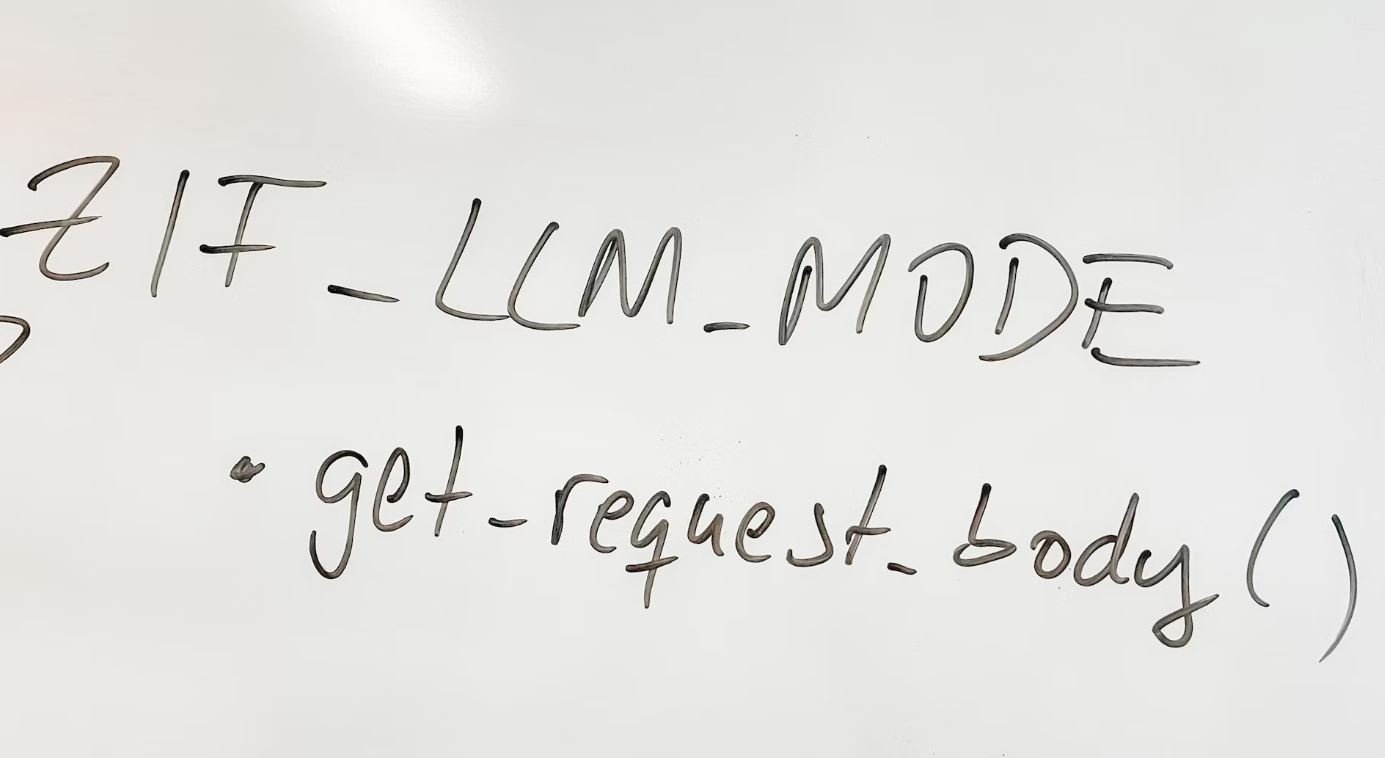What Is Journalist Writing?
Journalist writing is a form of journalistic practice that involves conveying information and news to the public through the written word.
Journalists are trained professionals who gather, verify, and present news and information to shape public opinion and keep the public informed.
Key Takeaways:
- Journalist writing involves conveying news and information through written articles.
- Journalists play a crucial role in gathering and verifying news to keep the public informed.
Journalist writing encompasses a wide range of styles and formats, including news articles, feature stories, investigative reports, and opinion pieces. Journalists strive to present unbiased information and maintain ethical standards to ensure accuracy and objectivity in their work. Their writing must comply with journalistic principles and guidelines.
Journalist writing aims to present facts, provide context, and tell a story. *While the primary goal is to inform, journalists also strive to engage readers and inspire critical thinking.* Journalists often conduct interviews, research extensively, and analyze data to uncover the truth and present a well-rounded perspective.
The Role of Journalists
Journalists have a critical role in society. Their writing serves to inform the public about current events, educate readers on important topics, and hold institutions and individuals accountable. Journalists are responsible for delivering unbiased news and raising awareness about societal issues.
**Journalists adhere to a code of ethics that includes principles such as accuracy, fairness, and integrity in their reporting.** These principles guide their writing and ensure that the information they provide is reliable and credible.
Types of Journalist Writing
Journalists write in various styles and formats to cater to different audience preferences and news topics:
- News Articles: These provide concise and objective accounts of recent events or developments.
- Feature Stories: These explore a specific topic in-depth, often adding context and human interest elements.
- Investigative Reports: These involve in-depth research and analysis to reveal hidden information or expose wrongdoing.
- Opinion Pieces: These express the author’s viewpoint on a particular issue, adding analysis and commentary.
Journalist Writing Process
When writing an article, journalists follow a process to ensure accuracy and effectiveness:
- Research: Journalists conduct thorough research to gather facts, data, and perspectives on the topic.
- Interviews: They often interview relevant individuals to gather firsthand information and quotes.
- Fact-Checking: Journalists verify the accuracy of information by cross-referencing multiple sources.
- Writing: They organize the gathered information into a clear and coherent narrative.
- Editing: Journalists review and revise their work for clarity, grammar, and adherence to editorial guidelines.
- Publication: The final article is published or broadcasted through various media channels.
Journalist Writing Tips
To become a better journalist writer, it’s important to consider the following tips:
- Develop strong research skills: Thorough research ensures reliable and accurate information.
- Write in a clear and concise manner: Use clear language and avoid jargon to make your writing accessible to a broader audience.
- Back up your claims with evidence: Support your statements with credible sources and data.
- Be unbiased and objective: Present different perspectives and sides of the story to foster balanced reporting.
Using Data in Journalist Writing
Data plays a crucial role in journalist writing, adding depth and supporting arguments. Here are some examples of how data can enhance journalistic work:
| Data Application | Benefits |
|---|---|
| Factual Reporting | Using data to provide accurate and reliable information to the readers. |
| Data Visualization | Presenting complex data in a visually appealing and easy-to-understand format. |
Using data in journalist writing allows for the inclusion of real numbers and statistics, which can strengthen arguments and provide evidence-backed claims.
Journalist Writing and the Digital Era
With the advent of the internet and digital media, journalist writing has evolved to adapt to new platforms and changing reader preferences. Online platforms and social media have expanded the reach and accessibility of journalist writing, making it more important than ever to deliver accurate and trusted information in a fast-paced digital landscape.
**Emerging technologies also offer new storytelling methods, such as interactive features and multimedia elements that enhance the reader experience.** These innovations have revolutionized journalist writing, providing more engaging and immersive ways to deliver news and information.
Journalist writing serves as a vital tool for shaping public opinion, informing the masses, and exposing truth. Through adherence to journalistic principles, extensive research, and effective storytelling techniques, journalists continue to make a significant impact on society.

Common Misconceptions
What Is Journalist Writing?
There are several common misconceptions that people have about journalist writing. To begin with, many people believe that journalists only write about current events and breaking news. However, this is not entirely true.
- Journalists also write feature articles, opinion pieces, and investigative reports.
- Journalists cover a wide range of topics such as politics, sports, entertainment, and science.
- Journalist writing can take various forms, including print articles, online blogs, and multimedia presentations.
Another misconception is that journalists simply report the facts without any biases or opinions. While it is true that journalists strive to provide accurate and unbiased information, they are also allowed to express their opinions in certain types of articles, such as columns or editorials.
- Journalists must maintain ethical standards and disclose any conflicts of interest.
- Journalists often strive to provide a balanced viewpoint by including multiple perspectives in their articles.
- Objectivity in journalism is a goal but can never truly be achieved as everyone has their own biases and perspectives.
Furthermore, some people assume that being a journalist is an easy job where you simply write what you see or hear. However, the reality is that journalism requires extensive research, interviews, and fact-checking.
- Journalists investigate and verify information before publishing to ensure accuracy.
- Journalists often have limited time to meet deadlines, requiring them to work efficiently.
- Journalists must constantly adapt to the changing media landscape and learn new tools and technologies.
There is also a misconception that anyone with a blog or social media account can be a journalist. While citizen journalism has its merits, professional journalists are trained to adhere to ethical guidelines and have a deeper understanding of journalistic principles.
- Professional journalists receive formal training in journalism ethics, reporting techniques, and media law.
- Journalists adhere to a code of ethics that includes principles like accuracy, fairness, and avoiding conflicts of interest.
- Career journalists have experience working in newsrooms and collaborating with editors and fellow reporters.
In conclusion, there are several misconceptions about journalist writing. Journalists cover a wide range of topics beyond just current events, express their opinions in certain types of articles, and go through a rigorous process of research and fact-checking. Being a journalist requires professional training and adherence to ethical guidelines, setting it apart from citizen journalism.

Table: Top 10 Countries with the Highest Press Freedom Index
Press freedom is a crucial aspect of journalism. This table showcases the top 10 countries with the highest press freedom index according to a reputable international organization.
| Rank | Country | Press Freedom Index |
|---|---|---|
| 1 | Norway | 83.33 |
| 2 | Finland | 82.31 |
| 3 | Sweden | 79.41 |
| 4 | Netherlands | 76.82 |
| 5 | Jamaica | 76.37 |
| 6 | Costa Rica | 75.62 |
| 7 | Switzerland | 75.10 |
| 8 | New Zealand | 74.55 |
| 9 | Portugal | 74.03 |
| 10 | Germany | 73.99 |
Table: Most Reputable Newspapers Worldwide
Reputable newspapers play a vital role in journalism. Let’s have a look at some of the most respected and widely read newspapers across the globe.
| Name | Country | Year Established |
|---|---|---|
| The New York Times | United States | 1851 |
| The Guardian | United Kingdom | 1821 |
| Le Monde | France | 1944 |
| El País | Spain | 1976 |
| The Asahi Shimbun | Japan | 1879 |
Table: Average Salary of Journalists by Country
Journalists around the world work tirelessly to deliver news to the public. Here, we present the average salaries of journalists in different countries.
| Country | Average Salary (USD) | Currency |
|---|---|---|
| United States | 58,580 | USD |
| United Kingdom | 33,000 | GBP |
| Australia | 55,000 | AUD |
| Germany | 40,000 | EUR |
| Canada | 52,000 | CAD |
Table: Media Ownership Concentration
Examining media ownership concentration is crucial to understanding the diversity of information sources available to the public.
| Country | Percentage of Media Owned by Top 10 Companies |
|---|---|
| United States | 90% |
| Australia | 85% |
| Germany | 80% |
| United Kingdom | 75% |
| France | 70% |
Table: Online News Consumption by Age Group
Exploring online news consumption patterns among different age groups can provide insights into shifting journalistic trends.
| Age Group | Percentage of Individuals Consuming Online News |
|---|---|
| 18-24 | 87% |
| 25-34 | 80% |
| 35-44 | 70% |
| 45-54 | 62% |
| 55+ | 45% |
Table: Gender Representation in Journalism
Gender representation in journalism is an important issue. This table displays the percentage of women working as journalists in different countries.
| Country | Percentage of Women Journalists |
|---|---|
| Sweden | 45% |
| Italy | 35% |
| United States | 32% |
| Japan | 29% |
| Russia | 20% |
Table: Social Media Usage among Journalists
Understanding the impact of social media in journalism is essential. This table highlights the percentage of journalists using various social media platforms for news dissemination.
| Social Media Platform | Percentage of Journalists Using |
|---|---|
| 78% | |
| 64% | |
| 41% | |
| 36% | |
| YouTube | 28% |
Table: Importance of Local News
Local news plays a critical role in shaping communities. This table ranks the importance of local news according to survey respondents.
| Country | Percentage of Respondents Ranking Local News as Very Important |
|---|---|
| United States | 82% |
| Canada | 75% |
| Australia | 70% |
| United Kingdom | 66% |
| Germany | 58% |
Table: Most Common Topics Covered by Journalists
Journalists cover a diverse range of topics. This table showcases the most common subjects covered by journalists worldwide.
| Topic | Percentage of Journalists Covering |
|---|---|
| Politics | 68% |
| Health | 57% |
| Environment | 52% |
| Sports | 46% |
| Technology | 39% |
Journalism is a dynamic field involving press freedom, reputable newspapers, diverse topics, and much more. Exploring the data presented in the tables above provides a glimpse into the multifaceted aspects of journalism. From the countries leading in press freedom to the topics that garner the most coverage, it is evident that journalism continues to shape our understanding of the world. By recognizing the challenges and strengths inherent in journalism, we can actively engage with the media and foster an informed society.
Frequently Asked Questions
What is journalist writing?
Journalist writing refers to the style of writing employed by journalists to report news and information. It involves gathering facts, conducting research, interviewing sources, and presenting information in a clear, concise, and accurate manner.
How does journalist writing differ from other forms of writing?
Journalist writing is distinct from other forms of writing in its commitment to reporting facts objectively and providing balanced coverage. Unlike creative or persuasive writing, journalist writing relies on truthful reporting and strives to present information in a non-biased manner.
What skills are required for journalist writing?
Journalist writing requires excellent research, interviewing, and critical thinking skills. Journalists must be able to gather reliable information, analyze complex issues, and present the facts accurately. Strong communication skills are also essential for effective journalist writing.
How do journalists find reliable sources for their writing?
Journalists use various methods to find reliable sources for their writing, such as reaching out to experts in the field, consulting official reports or documents, attending press conferences, and conducting interviews with relevant individuals. They also rely on established news organizations and reputable publications for accurate information.
What is the importance of fact-checking in journalist writing?
Fact-checking is crucial in journalist writing to ensure the accuracy and credibility of the information presented. Journalists are responsible for verifying facts and cross-referencing multiple sources to minimize errors and misleading information. Fact-checking helps maintain the integrity of the news and promotes trust between journalists and their audiences.
How does journalist writing contribute to society?
Journalist writing plays a vital role in society by providing information, raising awareness, and holding accountable those in positions of power. It helps to keep the public informed about current events, sheds light on important issues, and promotes discussion and informed decision-making among citizens.
What ethical considerations are involved in journalist writing?
Ethics in journalist writing include principles such as honesty, accuracy, fairness, and accountability. Journalists must avoid conflicts of interest, maintain independence, respect privacy and confidentiality, and disclose any information that may affect the objectivity of their reporting. Ethical considerations are crucial in upholding the profession’s standards and ensuring responsible journalism.
How has technology impacted journalist writing?
Technology has significantly transformed journalist writing. It has made information more accessible through the internet, allowing journalists to gather and disseminate news more quickly. Social media platforms have also become integral in breaking news stories and reaching wider audiences. However, technology has also led to challenges like misinformation and the rise of citizen journalism.
What role does journalist writing play in investigative journalism?
Journalist writing is at the core of investigative journalism, which involves in-depth research, analysis, and uncovering hidden truths. Investigative journalists often undertake complex investigations to expose corruption, wrongdoing, and societal issues. Journalist writing is essential in presenting investigative findings in a compelling and impactful manner.
How can one improve their journalist writing skills?
To improve journalist writing skills, individuals can practice writing news articles, attending journalism workshops or courses, and actively engaging with news organizations. Reading reputable news sources regularly and analyzing different journalistic styles can also help develop a better understanding of effective journalist writing.




